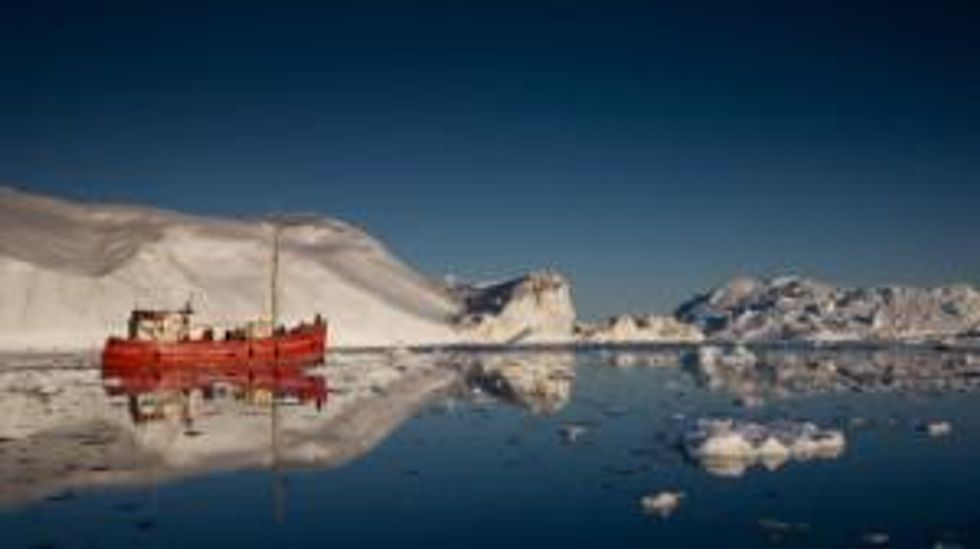Greenland Resource Sector Confirms No Favoritism
Greenland’s premier has confirmed that he will not favor the EU over China, or any other investor, when granting access to the country’s prized rare earth deposits.
Although Greenland has no advanced mineral or metals production, it shows massive potential as a host for a number of minerals, including rare earth elements (REEs), and is being touted as a region to watch.
While the nation often remains under the radar with regard to political issues, it was under the media spotlight recently when Greenland’s premier, Kuupik Kleist, told the BBC that he will not favor the European Union (EU) over China — or any other investor — when granting access to the country’s prized rare earth deposits.
Kleist said that it would not be fair “to protect others’ interests more than protecting, for instance, China’s,” adding that the country’s resource sector will not be practicing any form of favoritism. He confirmed to journalists that he has discussed securing Greenland’s minerals for Europe with an EU parliamentary committee, but said that the country is in no position to exclude any foreign investors unless there is a specific issue.
Investors often associate the country’s close ties with Denmark as a sign that it may lean towards EU favoritism; however, it is important to remember that Greenland was one of the first territories to leave the EU back in 1985.
A project currently being developed by Greenland Minerals and Energy (ASX:GGG) is ained at underlining just how much potential the area holds. The company’s focus, Kvanefjeld, is a large-scale delineated deposit recognized as one of the world’s largest REE resources and is estimated to contain a favorable mix of elements, including yttrium, according to the company’s website. A prefeasibility study estimates that the mine will be able to produce 43,729 tonnes of rare earth oxides and 3,895 tonnes of uranium a year across a 23-year lifespan
Strategic location
Based next to increasingly strategic shipping lanes, the North Atlantic island is attracting a lot of investor attention, especially as the melting of Arctic ice begins to pick up pace. While many are of the impression that Greenland is remote and logistically challenged, there are a number of benefits to its natural geography. It is strategically located between both North American and European markets, while Southern Greenland is located at a lower latitude than much of Alaska and Canada’s Yukon and Northwest Territories — all of which are popular areas amongst mineral explorers and miners.
Deep-water fjords cut into the country’s coastal fringes, meaning that the areas most suitable for exploration are close to potential deep-water port facilities.
The Chinese question
Interest in the country has exploded, and a number of western firms are already beginning to display signs of anxiety about China’s future role in Greenland’s mining sector. Some fear that China may attempt to exploit the territory in the battle for strategic control over Arctic resources and shipping routes.
Greenland’s government is backing a $2.35-billion iron mine project led by London Mining (LSE:LOND); it will be worth more than the island’s annual GDP and could attract as many as 5,000 Chinese workers (a third of the population of Nuuk, the country’s capital city) if it goes ahead. Greenland’s local government’s move last year to exempt projects of this scale from Denmark’s strict labor laws has also added to investor concerns. The project, which aims to lock down financing from China, would eventually result in the shipment of approximately 15 million metric tons of iron ore annually from fjords near Nuuk to China.
Speculation over the eastern giant’s intentions in the far north gained momentum last year when Chinese Premier Wen Jiabao visited Iceland and reached new heights when Chinese President Hu Jintao embarked on a visit to Denmark only two months later — the first state visit since the countries established diplomatic ties 62 years ago.
Martin Breum, the author of a book on Denmark’s role in the Arctic and Greenland’s oil possibilities, told Reuters that the iron ore project is not what has western governments, industries and intelligence agencies worried.
“Potential Chinese control of the rare earth elements in Greenland is scary to a lot of governments in the Western world,” said Breum, adding that China’s monopoly on REEs is “intolerable” to the west in the long term.
Government not concerned
While talk in Europe and North America revolves around a Chinese master plan to take over the Arctic and its resources, Greenland’s government is taking little notice. Kleist has downplayed concerns about Chinese plans to import labor for forthcoming operations by stating, “I do not see thousands of Chinese workers in the country as a threat,” according to Denmark’s Ritzau news agency.
In fact, he went on to commend the east, noting, “[i]t’s fair to say countries like China and South Korea are far more active than Americans and Europeans in showing their interest in investing,” according to the BBC. A Reuters article also quoted him as saying, “Greenland is open for investments from the whole world, taking into account that the investors accept the regulations and requirements from Greenland in doing so.”
Regardless of whether one sides with the east or the west, this once easily forgettable island is poised for great things. Greenland remains highly prospective, yet underexplored, and is politically stable, mining friendly and boasts a non-biased attitude toward foreign investment. Perhaps investors need to shift attention away from geopolitics and realize that this very lucrative landscape might very well end up playing a key role in defining the REE market moving forward.
Securities Disclosure: I, Adam Currie, hold no direct investment interest in any company mentioned in this article.
Related reading:
